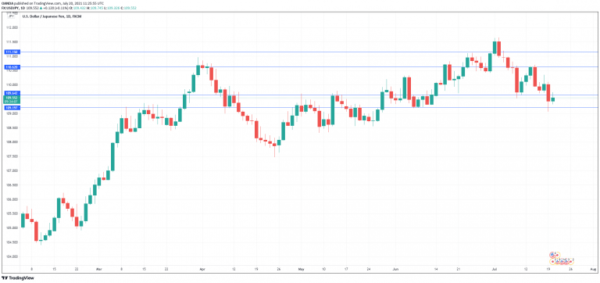The Japanese yen has settled down on Tuesday, after starting the week with strong gains. In the European session, USD/JPY is trading at 109.38, down 0.04% on the day. The yen remains relatively strong and dropped as low as 109.05 on Wednesday, its lowest level since May.
Japan inflation ticks higher
Japan’s inflation levels remain low, but there was a slight rise in CPI in June, thanks to higher energy prices. Nationwide Core CPI edged up 0.2% after a 0.1% gain in May. Core inflation remains well short of the BoJ’s inflation target of 2%. There are no inflationary pressures building up in the economy, unlike the situation in the eurozone, the UK and the US. In these areas, pent-up demand has been unleashed as the economy has reopened, triggering a jump in economic activity as well as inflation. However, in Japan, the domestic economy remains subdued, and the little inflation that we’re seeing is due to the surge in oil prices. Most businesses have been reluctant to pass onto the consumer the increased costs of raw materials, and this has also curbed inflation.
The weak Japanese economy is unlikely to resurge anytime soon. Last week, the Bank of Japan revised lower its growth forecast for the current fiscal year to March due to Covid-19. The BoJ quarterly report stated that the economy would grow 3.8%, down from the previous estimate of 4.0%.
Despite the weak economy, the yen has gained strength of late, rising 1.47% in July. This is due to the yen’s safe-haven status, which has made the currency attractive, as risk appetite is falling fast. The spike in the Delta Covid variant is taking a toll on the major economies and has alarmed investors, who are shedding their risky assets in favor of something safer. If Covid continues to spread, the yen should be able to make further inroads against the dollar.
USD/JPY Technical
- USD/JPY faces resistance at 110.62 and 111.15
- On the downside, the pair is testing support at 109.64. Below, we find support at 109.19

